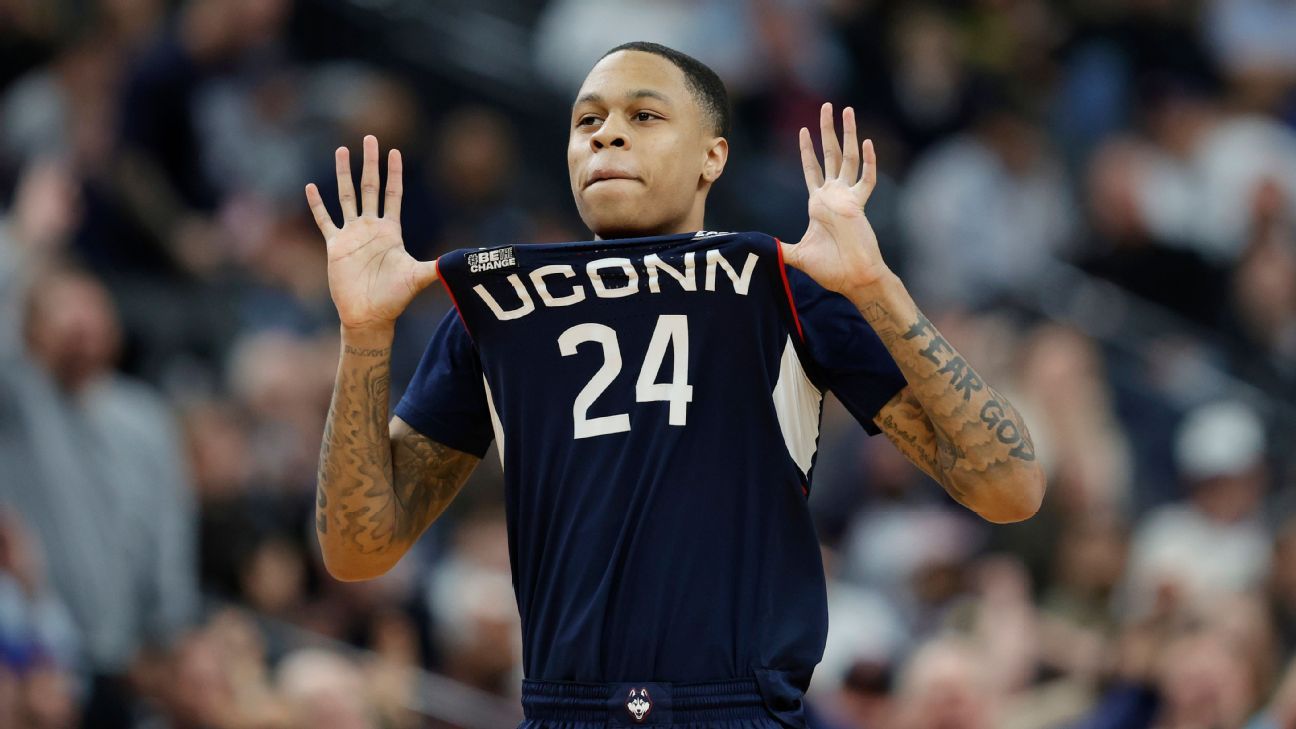Analytics are a tricky thing and this tournament is proof of it. We saw Gonzaga design a play for a deep 3-pointer late in a one-point game. Watch a game for five minutes and you’ll see a fast break with players stopping at the 3-point line as if stepping inside the arc is reaching lava. I get it and the math is solid given that these shots are worth 50% more than shots inside the arc. But should we be all-in on raw quantity of deep shots as this tournament comes to a close? Or should we be prioritizing quality when trying to pin down a winner?
Four teams remain after all the chaos, made shots and missed opportunities. One way or another, the UConn Huskies, San Diego State Aztecs, Miami Hurricanes and the Florida Atlantic Owls have survived and we are now tasked with trying to figure out whose season ends with a win. Does it seem like picking winners is an impossible task? Yes, but that doesn’t mean there isn’t a little statistical support.
Here is how often the winning team from a tournament game has checked each of the selected statistical boxes:
If you’ve been watching the games, these numbers hold. This has very much been a quality-over-quantity tournament in terms of shooting from distance and if you can get to the free throw line, you’re in a good spot to win — some of which is influenced by late-game fouling (often intentional), but the overall point remains. If you’re curious, here is how the remaining four teams shoot the ball this season compared with the average tournament winner (by game):
At a glance, Miami’s shooting acumen with a relatively low volume of triples attempted is appealing. Could the wide gap between 3PA and FTA per game doom FAU before the Owls are able polish off a storybook run? It’s certainly possible. But let’s home in on the 3-point shooting, as that is how this era of hoops is defined. From that first table, we learned that 3P% has been (unsurprisingly) tied to success this tournament and that winning teams are, typically, taking fewer triples than their opponents. Great. So which of the remaining four teams fit that profile the most often? Glad you asked:
Now things get interesting. UConn tends to shoot more 3s than its opponents and cash in at a higher rate which, on the surface, feels optimal. And it is. But it also leaves the door open for some downside — what if the Huskies go cold? That would be a high-volume problem whereas Miami goes the low-volume and high-percentage route much more often (clearing 36%).
You can interpret this data however you’d like in an effort to solve the final three games of a ludicrous tournament. What we’re saying is that a San Diego State vs. Miami final is a lot closer to happening now than it was a few weeks ago, and that’s music to the ears of those behind the 3,467 brackets (of the 20,056,652 filled out on ESPN.com) that have that matchup occurring.
